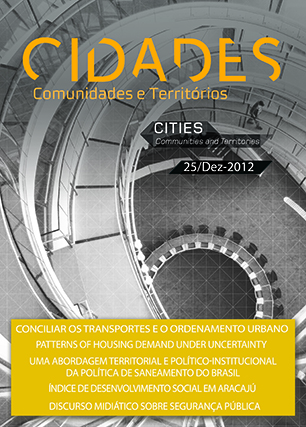A territorial and political-institutional approach to Brazil's sanitation policy, in the water supply axis
Keywords:
public policy, sanitation, spacial and political-institucionalAbstract
This study aims to develop a model that seeks to ascertain to what extent the notion of space can contribute to the interpretation of a particular policy. It incorporates in public policy analysis the relationship between the spatial and political-institutional spheres, establishing a comparison between locations in Brazil, and taking into account the influence that their municipalities exert in relation to the dimensions considered relevant to public policy design. This is achieved through the construction of a spacial statistical model, according to which influences are separated in terms of to the relation between locations, be it spacial or political-institucional. An approach is proposed whereby different dimensions, such as key players – politicians, voters, bureaucrats and interest groups –, are considered, surpassing infrastructural and demographic factors and including institutional and political factors, in an attempt to make a thourough analysis of these matters. The tested hypothesis proved not only the interference of the physical neighborhood relationship on the outcome of public policies, but also the interference of the political and institutional relationship, associated with this result, simultaneously, in a single model.
Downloads
Additional Files
Published
Issue
Section
License
CIDADES, Comunidades e Territórios by DINÂMIA'CET-Iscte is licensed under a CC-BY licence.






